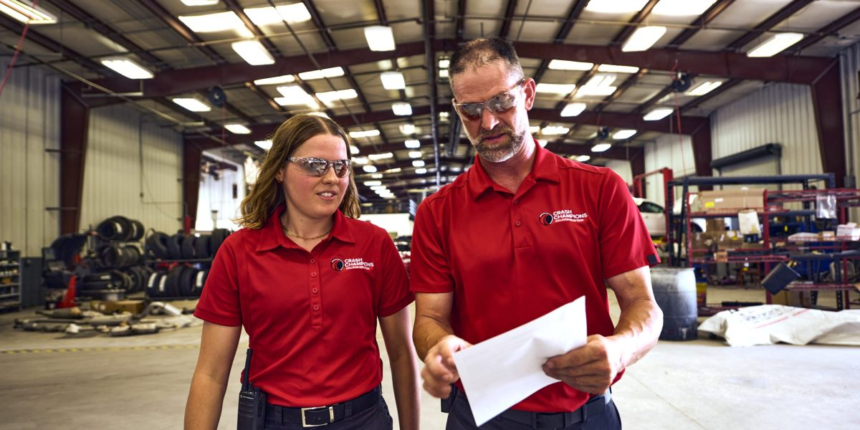When Matt Ebert speaks about his car-collision repair shop empire, he does so in a humble way, like his beginnings.
“We didn’t have much from a financial standpoint,” he told Fortune. “College and big career planning weren’t ever a discussion in my family.”
Ebert had an entrepreneurial spirit and started mowing lawns for people at age 10 or 11. His real interest, though, was cars, and he couldn’t wait to open the hood on his first car, change its oil, and take its wheels off.
“For me, a car meant freedom,” he recalled. “I still remember the first time I was in a car by myself, thinking about how I could go anywhere I want right now.”
But at age 16, he wrecked his first car: a two-seater Ford EXP. Not wanting to make an insurance claim or get his insurance canceled, he visited a local car repairman and asked him if he could show Ebert how to fix his car. The repairman did—and that launched Ebert into a career of repairing cars.
Ebert took a job with the repairman after high school, therefore coming “literally, by accident” into the industry. Now he oversees a company that’s seen 130x revenue growth since 2019 and employs more than 10,000 people.
“I’ve done really, really well in life not having gone to college,” he said. “And I’m not anti-college. I think there’s definitely things that college is great for. But I also know that it’s not an opportunity for everyone.”
“We view college as a bonus, not a requirement,” Ebert said. Of course, there are certain positions that require a specific degree, he added, like how their controller and chief legal officer needed degrees.
“We can recruit the best technicians. We can train the best technicians, [but] if they’re working for bad managers, they’ll leave and go elsewhere,” Ebert said.
Crash Champions also offers an apprenticeship program where they can “start technicians from scratch,” he said. They’re placed with a team member whom they work with for a couple of years then are off on their own.
Ebert credits his employees with many of the company’s accomplishments.
“A key to my success has been surrounding myself with better people, smarter people than me, people that have done things that I haven’t done,” he said.
Still, Ebert was the mastermind behind the company. After high school, he moved up to the suburbs of Chicago and stayed with his grandparents for a couple of years and got a job at a body shop. At the time, he still wanted to start his own business, but “being a young kid who didn’t know anybody,” he knew that’d be a challenge, and said starting his own body shop would be “a little over [his] head.”
But he was wrong. That one didn’t make money either. So with that, he went back to his car-repair roots, and approached a local car repairman, and they opened a bodyshop together in 1999, when Ebert was 26. His business partner, who was 20 years older than him, retired in 2014 and sold the business to Ebert in 2014.
That became the start of Crash Champions, which was first named Lennox after a town in Illinois. Ebert changed the name of his business to Crash Champions, which originates from the idea that the bodyshop is a hero in a customer’s time of need after an accident.
“I wanted to make the shops nice, tear down some of those stereotypes, make it a place that people would want to come, a place that people would want to work,” he explained.
After taking over the business, Ebert knew he wanted to expand, and he acquired a struggling bodyshop—which quickly snowballed into buying the business’ third and fourth locations, all within about a year.
At the time, Ebert was still using Small Business Administration financing, and “basically grew it as far as” he could in the Chicago area. He wanted to acquire more shops, but couldn’t with SBA financing, so he worked with an investment banker who suggested private equity as an alternative to debt. Ebert was initially hesitant to do that, but recognized industry trends like tech advancements in vehicle repair would require more capital. The COVID-19 pandemic forced a shift in strategy, but Ebert also saw a need for his business model on a national scale.
Those turned into 330 of Crash Champions’ current 650 locations, and the company saw its revenue skyrocket from $327.1 million in revenue in 2021 to $2.1 billion in 2022. For this year, it’s projecting around $3 billion and plans to “ramp [up] growth next year,” Ebert said.









